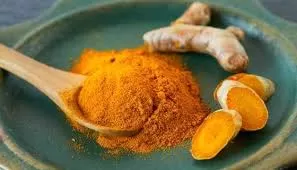- 0086-571-85302990
- sales@greenskybio.com
What is the strongest herb for arthritis?
2025-04-25
Arthritis is a prevalent condition affecting millions worldwide, known for causing inflammation, joint pain, and stiffness. It is a debilitating condition that can significantly impact the quality of life, leading sufferers to seek relief through various means. While conventional treatments like analgesics and anti-inflammatory drugs are effective, they often come with side effects. This has led many to explore herbal alternatives, which are generally regarded as safer. But among the multitude of herbs touted for arthritis relief, which is the strongest? This article delves into the world of herbal medicine, evaluating several powerful herbs known for their anti-inflammatory and analgesic properties, and seeks to identify the strongest herb for arthritis.
Understanding Arthritis and the Need for Herbal Remedies
Arthritis encompasses more than 100 different conditions, the most common of which are osteoarthritis and rheumatoid arthritis. Osteoarthritis (OA) is characterized by the degeneration of cartilage and is typically related to aging and wear-and-tear. Rheumatoid arthritis (RA), on the other hand, is an autoimmune disease that causes the body’s immune system to attack the joints. Both types result in pain and inflammation, making these conditions difficult to manage.
While medical treatments are available, the side effects and long-term implications of prolonged medication use can be concerning. This has fueled interest in herbal and natural remedies, which offer a gentler approach to managing symptoms.
Herbs Competing for the Title of Strongest
Over the years, several herbs have emerged as promising candidates owing to their anti-inflammatory properties. Here, we explore some of the most effective herbs used in arthritis treatment:
Turmeric (Curcuma longa): Turmeric is a well-known spice, primarily used in cooking, that has gained recognition for its medicinal benefits. Its active compound, Curcumin, is renowned for distinct anti-inflammatory and antioxidant effects. Clinical studies have highlighted Curcumin’s ability to inhibit inflammatory pathways and reduce pain and stiffness associated with arthritis, making it a popular choice for joint health.
Boswellia (Boswellia serrata): Boswellia, derived from the resin of the Boswellia tree, has been a staple in Ayurvedic medicine. It is effective in managing inflammation due to its boswellic acids, which block enzyme activity that triggers inflammation in the body. Studies have shown promising results for reducing pain and improving mobility in arthritis patients.
Ginger (Zingiber officinale): Known for its culinary and medicinal properties, ginger contains gingerols, which exhibit strong anti-inflammatory effects. Research indicates ginger's effectiveness in alleviating pain and improving joint function, positioning it as a contender in arthritis treatment.
Devil’s Claw (Harpagophytum procumbens): Native to South Africa, devil’s claw contains harpagoside, a compound known for its anti-inflammatory properties. It has been traditionally used to provide relief from pain and improve joint flexibility, with studies supporting its use in arthritis management.
Willow Bark (Salix alba): Willow bark is often compared to aspirin because it contains salicin, a precursor to aspirin. It has been used historically to provide pain relief and comfort, showing efficacy in alleviating arthritis symptoms.
The Strongest Herb: Turmeric’s Leading Role
Turmeric emerges as a leading option among these herbs due to its diverse mechanisms of action. Curcumin, as the potent bioactive component of turmeric, not only helps in reducing inflammation but also exhibits antioxidative properties. It can modulate numerous signaling molecules, offering broad-spectrum relief against arthritis symptoms.
Furthermore, curcumin’s ability to target multiple inflammatory pathways and its minimal side effects when compared to NSAIDs make it a favorable option. Recent advancements in supplement formulations have improved curcumin’s bioavailability, allowing for increased therapeutic effectiveness. Products that combine curcumin with Black Pepper Extract (piperine) or employ liposomal delivery methods have enhanced absorption rates, providing greater relief.
Considerations for Herbal Use in Arthritis Management
Even though herbs present fewer side effects than pharmaceuticals, proper use and understanding remain crucial:
Medical Guidance: It is advisable to consult healthcare providers when incorporating herbal remedies, especially for individuals currently taking medications or those with preexisting health conditions. Herbs can interact with conventional drugs, potentially altering their effects.
Quality and Dosage: The efficacy of herbs can vary significantly with different formulations and quality. Selecting high-quality, standardized extracts ensures a consistent therapeutic experience.
A Comprehensive Approach: Herbs should be part of a holistic arthritis management plan that includes lifestyle changes, such as regular exercise, dietary adjustments, and medical treatment when necessary.
Final Thoughts
In the pursuit of the strongest herb for arthritis, turmeric with its active compound curcumin stands out due to its extensive research backing and comprehensive therapeutic benefits. While natural remedies offer promise, chronic conditions like arthritis require a multifaceted approach tailored to individual needs. As scientific studies continue to explore herbal medicine, integrating these remedies within broader management strategies will contribute to effective arthritis care and improved quality of life for sufferers.
- ▶ Hesperidin
- ▶ citrus bioflavonoids
- ▶ plant extract
- ▶ lycopene
- ▶ Diosmin
- ▶ Grape seed extract
- ▶ Sea buckthorn Juice Powder
- ▶ Beetroot powder
- ▶ Hops Extract
- ▶ Artichoke Extract
- ▶ Reishi mushroom extract
- ▶ Astaxanthin
- ▶ Green Tea Extract
- ▶ Curcumin Extract
- ▶ Horse Chestnut Extract
- ▶ Other Problems
- ▶ Boswellia Serrata Extract
- ▶ Resveratrol Extract
- ▶ Marigold Extract
- ▶ Grape Leaf Extract
- ▶ blog3
- ▶ blog4
- ▶ blog5
-
The Best Supplements for Knee and Joint Pain
2025-04-25
-
Nettle Root Extract
2025-04-25
-
Hesperidin
2025-04-25
-
Red Vine Extract
2025-04-25
-
Calendula Extract
2025-04-25
-
Beetroot Powder
2025-04-25
-
Curcuma Longa Extract
2025-04-25
-
Propolis Extract Powder
2025-04-25
-
Clove Powder
2025-04-25
-
Chaste Berry Extract
2025-04-25
-
Grapefruit Seed Extract Powder
2025-04-25






















